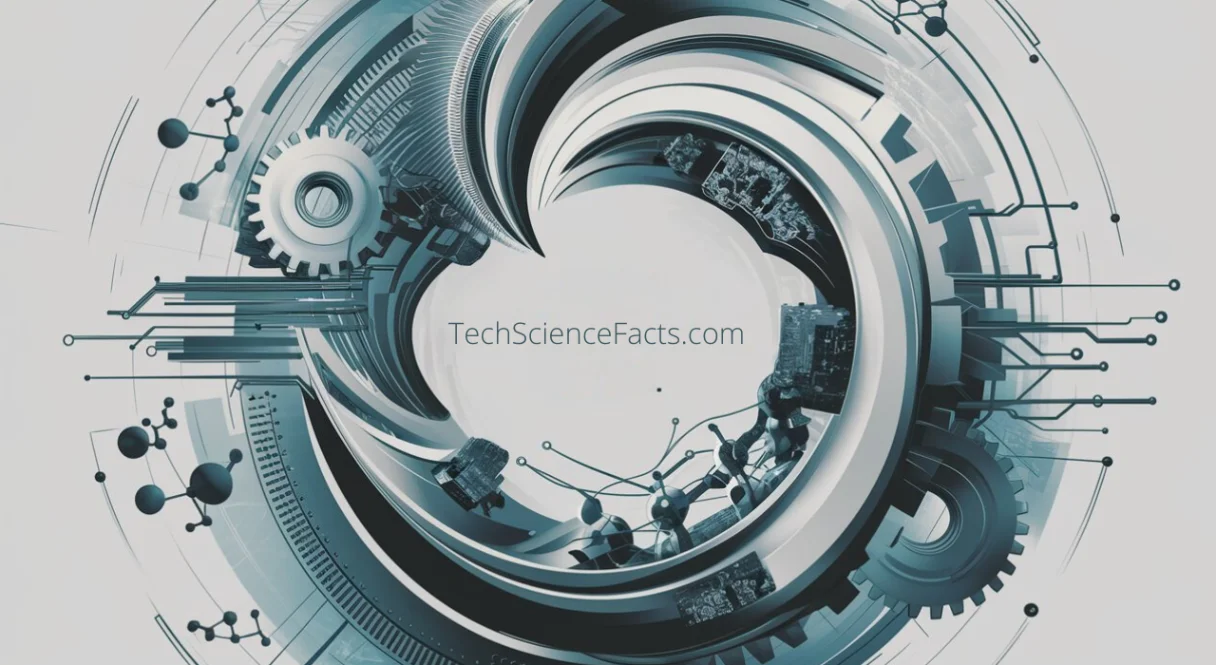A Note About Images: The images used in our articles are for illustration purposes only and may not exactly match the content. They are meant to engage readers, but the text should be relied upon for accurate information.
Are you curious about the intricate processes happening inside your cells that keep your body running smoothly? Energy metabolism is the key to unlocking the secret behind converting the food we eat into the energy our bodies need. In this article, we will embark on a journey through eight intriguing facts about energy metabolism, shedding light on its significance and the incredible mechanisms at play. From the role of enzymes to the impact of exercise and genetics, we will explore how these facts contribute to our deeper understanding of this fundamental biological process.
Unveiling the Mysteries of Energy Metabolism
Energy metabolism serves as the powerhouse within our cells, producing adenosine triphosphate (ATP) to fuel all activities crucial for our well-being. Without ATP, cells wouldn’t be able to function properly, emphasizing its vital role in sustaining life. Think of energy metabolism as your body’s internal power plant, ensuring you have the energy necessary to thrive.
The Vital Role of ATP
ATP, often referred to as the cell’s “energy currency,” is the molecule responsible for storing and transferring energy within living organisms. This powerhouse molecule fuels various cellular processes, including muscle contraction, nerve impulse transmission, and biochemical reactions. Without ATP, the cellular machinery would grind to a halt, underscoring its indispensable nature.
Exploring the Powerhouse: Mitochondria
Mitochondria are captivating structures known as the powerhouse of the cell due to their role in producing the majority of ATP through cellular respiration. These tiny, double-membraned organelles convert nutrients into ATP, supplying the energy required for cellular functions. Interestingly, mitochondria possess their own DNA, hinting at a symbiotic relationship they may have once had with independent organisms.
Journey Through Metabolic Pathways
Energy metabolism involves a series of interconnected chemical reactions known as metabolic pathways. These pathways entail breaking down complex molecules like carbohydrates, fats, and proteins to release energy, which is then stored in ATP molecules for future use. Examples of metabolic pathways include glycolysis, the citric acid cycle, and oxidative phosphorylation, each contributing to the energy production process.
Enzymes: The Catalysts of Energy Metabolism
Enzymes act as catalysts in energy metabolism, expediting chemical reactions without being consumed in the process. These proteins play a crucial role in facilitating metabolic pathways by recognizing and binding to specific molecules with precision. Without enzymes, the efficiency of energy metabolism would be compromised, highlighting their significance in cellular function.
Impact of Exercise on Energy Metabolism
Engaging in physical exercise exerts a profound influence on energy metabolism by increasing the body’s demand for energy and boosting ATP production. Depending on the intensity and duration of exercise, different energy sources like carbohydrates, fats, and stored glycogen are utilized. Regular physical activity not only enhances energy metabolism efficiency but also contributes to overall well-being.
Genetics and Energy Metabolism
Genetic variations can influence how efficiently our bodies produce and utilize energy, affecting weight, metabolism, and susceptibility to certain health conditions. These genetic factors contribute to individual differences in energy metabolism, underscoring the intricate interplay between our genetic makeup and cellular processes.
Energy Metabolism in Ageing
Age-related changes can impact the efficiency of energy metabolism, leading to a decline in ATP production and contributing to age-related diseases and diminished physical performance. Understanding the mechanisms underlying age-related alterations in energy metabolism is a burgeoning area of research with implications for healthy ageing.
Conclusion: Embracing the Marvels of Energy Metabolism
In conclusion, energy metabolism stands as a captivating and essential process in biology, converting consumed fuel into vital energy for cellular functions. By unraveling the intricacies of energy metabolism and its various components, we gain valuable insights into optimizing our health and well-being. From metabolic pathways to the interplay of genetics and exercise, each aspect of energy metabolism contributes to the comprehensive understanding of our cellular machinery.
FAQs: Addressing Your Curiosities About Energy Metabolism
- What is energy metabolism? Energy metabolism involves converting consumed food into energy that cells can utilize for essential functions through biochemical reactions.
- What factors influence energy metabolism? Factors like age, body composition, physical activity, hormonal balance, genetics, and medical conditions can impact energy metabolism.
- How can I optimize my energy metabolism? Maintaining a balanced diet, engaging in regular physical activity, getting adequate rest, managing stress, and staying hydrated are key for optimizing energy metabolism.
- Can medical conditions affect energy metabolism? Medical conditions like metabolic disorders, thyroid dysfunction, and diabetes can influence energy metabolism, emphasizing the importance of seeking appropriate medical care.
- Are there foods or supplements that support energy metabolism? While some foods rich in antioxidants and B vitamins may enhance energy metabolism, a balanced diet overall is crucial. Consult a healthcare professional before considering supplements.
Embark on a journey through the captivating world of energy metabolism, gaining a deeper understanding of the processes that sustain life within your cells. By exploring the secrets of GTP, NAD, and chemiosmotic coupling, you’ll uncover even more fascinating aspects of cellular biology, expanding your knowledge and curiosity. Embrace the complexities of energy metabolism and its implications for health and well-being, empowering yourself with insights into optimizing your cellular machinery for vitality and longevity.





